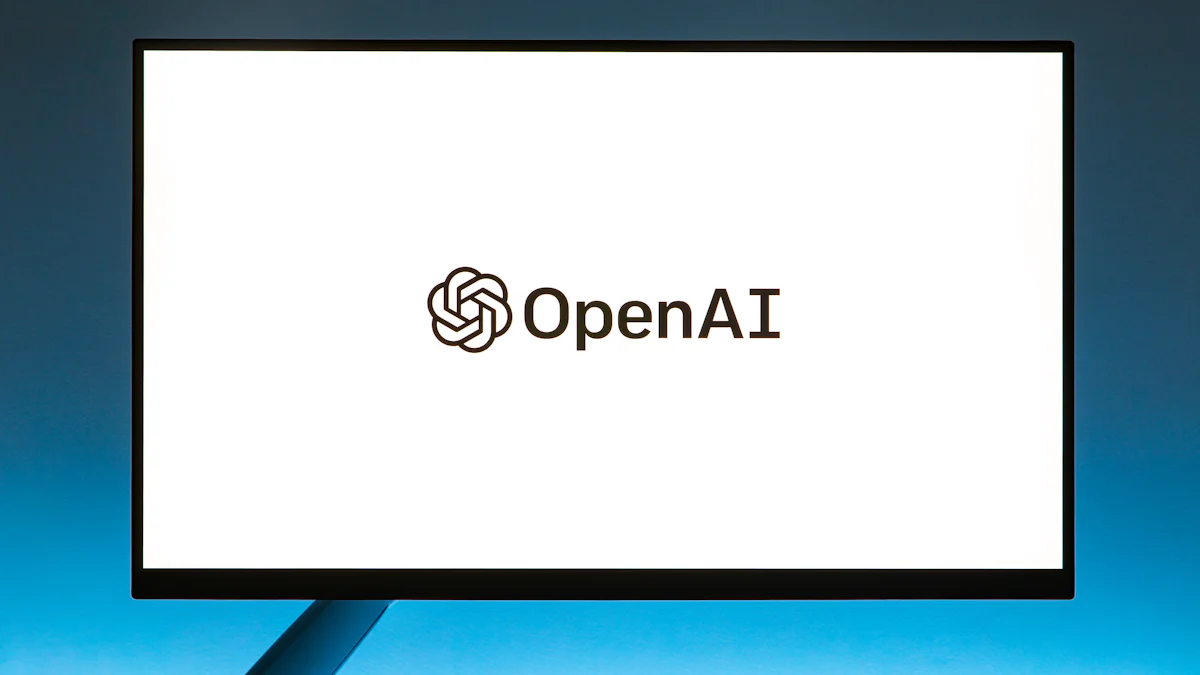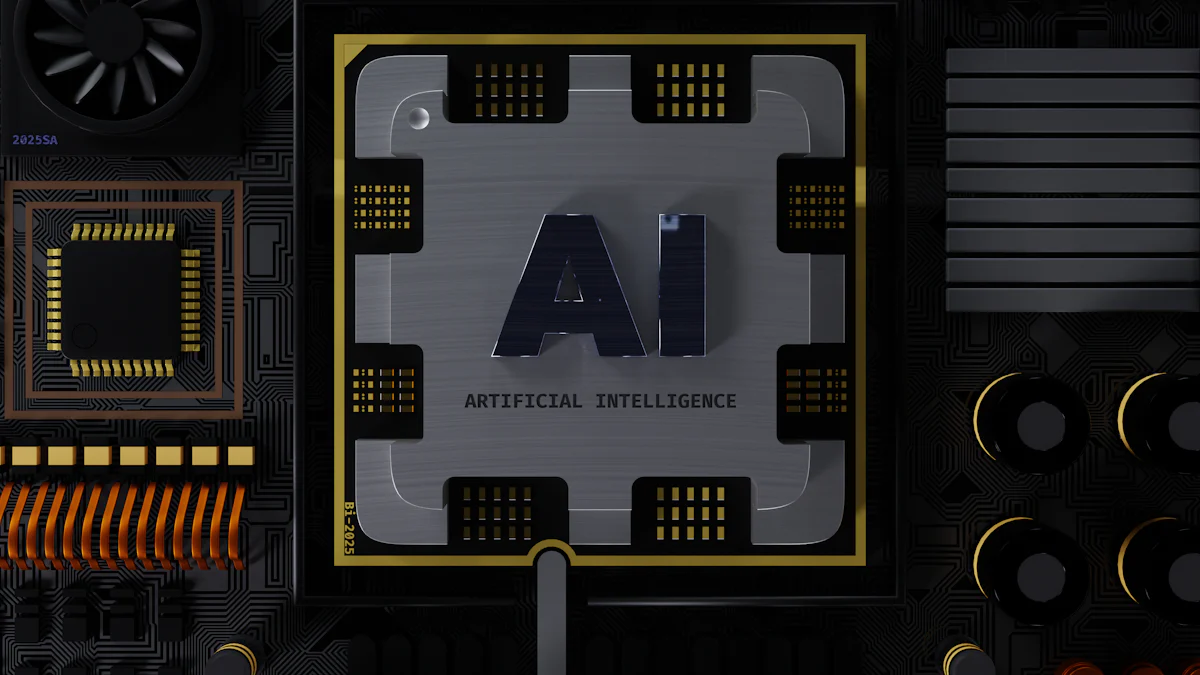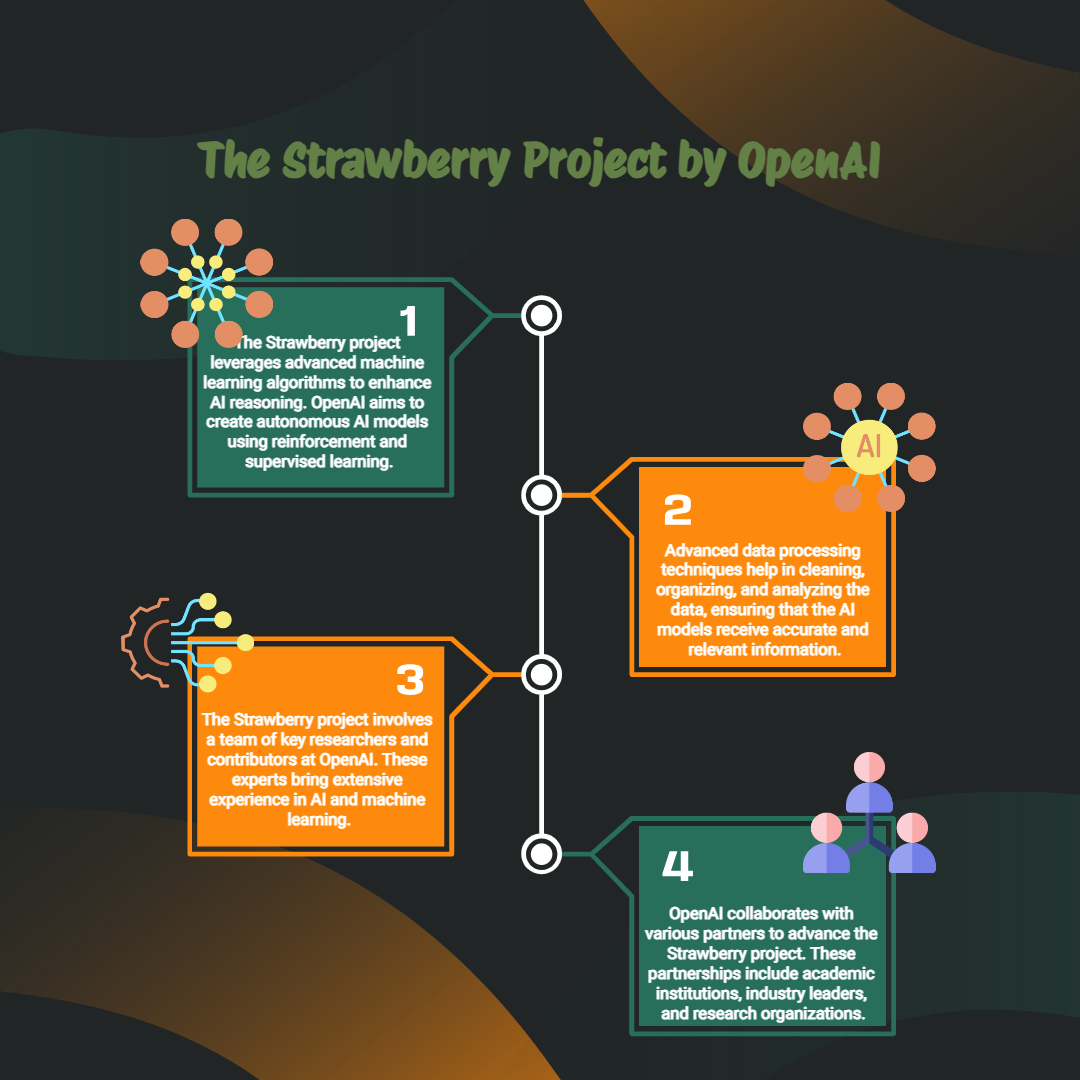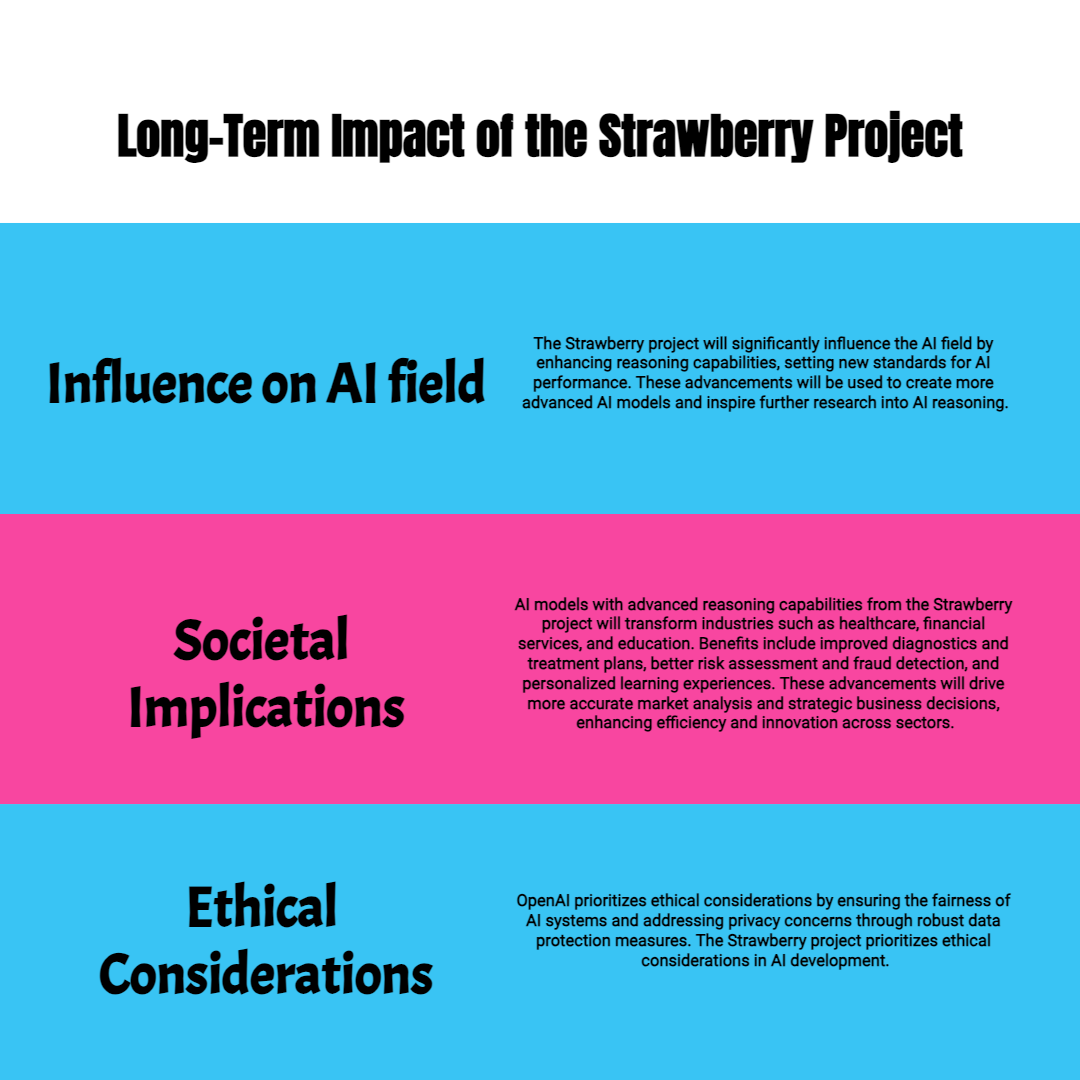OpenAI's 'Strawberry' Project: Pioneering AI Reasoning

OpenAI working on new reasoning technology under code name ‘Strawberry’, a leader in artificial intelligence research, strives to advance digital intelligence for the benefit of humanity. The organization has embarked on a groundbreaking endeavor known as the 'Strawberry' Project. This initiative aims to enhance the reasoning capabilities of AI models. AI reasoning stands as a critical component in modern technology. Improved reasoning abilities can unlock new potentials, enabling AI to perform complex tasks autonomously.
OpenAI working on new reasoning technology under code name ‘Strawberry’

Project Background
Origins and inspiration
OpenAI initiated the Strawberry project to address limitations in current AI reasoning capabilities. The inspiration came from the need for AI models that can autonomously perform complex tasks and conduct deep research. The previous project, Q*, laid the groundwork by demonstrating advanced reasoning in answering complex science and math questions. Strawberry aims to build on these successes and push the boundaries of AI reasoning further.
Key objectives
The primary objectives of the Strawberry project include enhancing AI's ability to plan and execute long-horizon tasks. OpenAI seeks to enable AI models to navigate the internet autonomously and conduct deep research. The project also aims to mitigate logical mistakes and hallucinations in AI models, improving their reliability and accuracy. Ultimately, OpenAI wants its AI models to reason through complex problems and operate more like human experts.
Core Technologies
Machine learning algorithms
The Strawberry project leverages advanced machine learning algorithms to enhance AI reasoning. These algorithms focus on improving the model's ability to understand and interact with the world. By incorporating techniques from reinforcement learning and supervised learning, OpenAI aims to create AI models capable of autonomous decision-making and problem-solving.
Data processing techniques
Data processing techniques play a crucial role in the Strawberry project. OpenAI employs sophisticated data collection methods to gather diverse and high-quality datasets. These datasets are essential for training AI models to perform complex tasks. Advanced data processing techniques help in cleaning, organizing, and analyzing the data, ensuring that the AI models receive accurate and relevant information.
Team and Collaboration
Key researchers and contributors
The Strawberry project involves a team of key researchers and contributors at OpenAI. These experts bring extensive experience in AI and machine learning. Their collective expertise drives the project's innovative approaches and solutions. The team continuously explores new methodologies to enhance AI reasoning capabilities.
Partnerships and collaborations
OpenAI collaborates with various partners to advance the Strawberry project. These partnerships include academic institutions, industry leaders, and research organizations. Collaborative efforts help in sharing knowledge, resources, and expertise. Such collaborations are vital for achieving the ambitious goals of the Strawberry project and pushing the boundaries of AI reasoning.

Methodologies and Approaches
Research Methodologies
Experimental setups
OpenAI working on new reasoning technology under code name ‘Strawberry’ involves intricate experimental setups. Researchers design controlled environments to test AI models' reasoning capabilities. These setups simulate real-world scenarios to evaluate AI performance in complex tasks. The goal is to ensure that AI models can autonomously navigate and decide.
Data collection methods
Data collection methods play a pivotal role in OpenAI working on new reasoning technology under code name ‘Strawberry’. Researchers gather diverse datasets from various sources. These datasets include scientific literature, online resources, and real-world data. High-quality data ensures AI models receive accurate information for training. The collected data undergoes rigorous cleaning and preprocessing to maintain its integrity.
Technical Approaches
Algorithm development
Algorithm development stands at the core of OpenAI working on new reasoning technology under the code name ‘Strawberry’. Engineers develop advanced machine learning algorithms to enhance AI reasoning. These algorithms incorporate techniques from reinforcement learning and supervised learning. The objective is to create AI models capable of autonomous decision-making and problem-solving.
Real-world Applications
Industry use cases
The Strawberry project by OpenAI aims to revolutionize various industries through enhanced AI reasoning capabilities. In scientific research, AI models can autonomously conduct deep research, making significant discoveries without human intervention. Market analysis will benefit from AI's ability to process vast amounts of data, providing insights that drive strategic decisions. Software development will see AI models planning and building new applications, streamlining the development process.
Strawberry's advanced reasoning can also transform healthcare by enabling AI to diagnose complex medical conditions and suggest personalized treatment plans. Financial services will leverage AI for risk assessment and fraud detection, improving security and efficiency. The education sector will see AI tutors providing customized learning experiences, adapting to individual student needs.
Potential benefits
The potential benefits of the Strawberry project are immense. Enhanced AI reasoning will lead to more accurate and reliable decision-making across various domains. Industries will experience increased efficiency and innovation, as AI models take on complex tasks that were previously challenging. The ability to plan and execute long-horizon tasks will enable AI to tackle multi-step problems, providing solutions that are both effective and timely.
Improved AI reasoning will also reduce logical mistakes and hallucinations, enhancing the trustworthiness of AI systems. This reliability will foster greater adoption of AI technologies, driving progress in multiple sectors. The Strawberry project represents a critical turning point in AI development, promising a future where AI systems can perform at or beyond human-level intelligence.
Ethical Considerations
Bias and fairness
Ethical considerations are paramount in the Strawberry project. Addressing bias and ensuring fairness in AI models is crucial. AI systems must provide equitable outcomes for all users, regardless of their background. OpenAI employs rigorous testing and validation processes to identify and mitigate biases in AI reasoning. Continuous monitoring and updates help maintain fairness and prevent discriminatory practices.
Researchers at OpenAI prioritize transparency in their methodologies, openly sharing findings and improvements. Collaboration with diverse stakeholders ensures multiple perspectives are considered, promoting inclusivity in AI development. By addressing bias and fairness, the Strawberry project aims to create AI systems that serve the broader interests of society.
Privacy concerns
Privacy concerns also play a significant role in the Strawberry project. Protecting user data is essential for maintaining trust in AI technologies. OpenAI implements robust data protection measures, ensuring that personal information remains secure. Data collection methods adhere to strict ethical guidelines, minimizing the risk of privacy breaches.
OpenAI's commitment to privacy extends to the design of AI models. Researchers develop algorithms that prioritize data anonymization and encryption. By safeguarding user privacy, the Strawberry project aims to build AI systems that respect individual rights and maintain public confidence.
Planned advancements
OpenAI intends to expand the scope of Strawberry by integrating more complex datasets. This integration will enable AI models to tackle a broader range of tasks. The organization also plans to improve the post-training process, fine-tuning AI models for specific applications. These advancements will bring AI closer to human-like intelligence.
Future research directions
Future research will explore new methodologies to enhance AI reasoning. OpenAI will investigate advanced reinforcement learning techniques to improve autonomous decision-making. Researchers will also focus on developing algorithms that can plan and execute long-horizon tasks.
OpenAI aims to collaborate with academic institutions and industry leaders to share knowledge and resources. These collaborations will drive innovation and push the boundaries of AI reasoning. Future research will also address ethical considerations, ensuring that AI systems are unbiased.
Long-term Impact
Influence on AI field
The Strawberry project will significantly influence the AI field. Enhanced reasoning capabilities will set new standards for AI performance. Researchers and developers will adopt these advancements to create more sophisticated AI models.
The project's success will inspire further research into AI reasoning. Other organizations will follow OpenAI's lead, contributing to the overall progress of the field. The Strawberry project will serve as a benchmark for future AI developments.

Societal implications
The societal implications of the Strawberry project are profound. AI models with advanced reasoning capabilities will transform various industries. Healthcare will benefit from AI's ability to diagnose complex conditions and suggest treatment plans. Financial services will see improved risk assessment and fraud detection.
Education will experience a revolution with AI tutors providing personalized learning experiences. Market analysis will become more accurate, driving strategic decisions in business. The Strawberry project will enhance efficiency and innovation across multiple sectors.
Ethical considerations will remain a priority. OpenAI will ensure that AI systems are fair. OpenAI will address privacy concerns through robust data protection measures. The Strawberry project will build AI systems that respect individual rights and maintain public confidence.
OpenAI's commitment to pushing the boundaries of AI reasoning sets a new standard for the field. Future developments will likely bring AI closer to human-like intelligence, fostering innovation and efficiency across multiple sectors.
For further insights and updates on AI advancements, readers are encouraged to explore additional resources and stay engaged with ongoing research.
See Also
The Future of OpenAI's Leading Artificial Intelligence Model
Handling the Debate: Perplexity AI's Issue with Content Duplication

